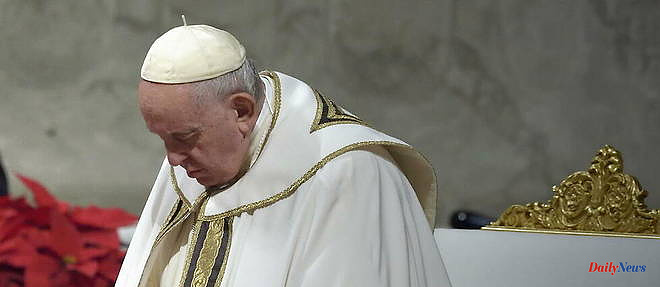The Vatican issued a document on Thursday to distance itself from the colonial excesses of the Catholic Church, where it "rejects" the papal edicts of the 15th century authorizing the enslavement of indigenous peoples, mainly in America.
This position refers to the terrible campaigns of forced conversions carried out by the Catholic Church after the arrival of Europeans on the American continent in the wake of the expedition of Christopher Columbus in 1492. This text found a particular echo in Canada , where between the late 19th century and the 1990s, some 150,000 Indigenous children were taken from their families and forcibly enrolled in boarding schools, often run by the Catholic Church, where they were cut off from their families, their language and culture. The pope has since recognized that this drama of the residential schools amounted to genocide.
This rejection of the papal edicts, "it's immense", reacted to Agence France Presse the Canadian native senator Michèle Audette. "For many of us, it's been asked for decades," she added.
During Pope Francis' visit to Canada in July 2022, Indigenous groups called on him to repeal the papal "Bulls" - official documents signed by the Pope - that gave rise to the "Doctrine of Discovery", which allowed European powers to colonize non-Christian lands and peoples.
This doctrine was again used in 2005 in the United States to justify the taking of indigenous territories in a judgment of the Supreme Court. This "concerns all the indigenous peoples of the world," said Jean-François Roussel, professor at the Institute of Religious Studies at the University of Montreal. "This is probably the last chapter in the time of lyrics. Now, actions must follow,” added the expert, referring to the issue of financial compensation, support projects or cultural revitalization that already exist, but which must be strengthened.
In the note released Thursday jointly by the dicasteries (ministries) for Culture and Education and the Service for Integral Human Development, the Vatican refers to three papal bulls issued in the 15th century by Nicholas V and Alexander VI. The Vatican considers these "bulls" to be "political documents, instrumentalized for immoral acts", and believes that they "have never been considered expressions of the Catholic faith".
The Holy See further recognizes that they "have not adequately reflected the equal dignity and rights of Indigenous peoples". "The Catholic Church therefore rejects concepts that fail to recognize the inherent human rights of Indigenous peoples, including what is known legally and politically as the 'Doctrine of Discovery'.
The Vatican document acknowledges that "many Christians have committed malicious acts against indigenous peoples, for which recent popes have repeatedly asked forgiveness."
And the Catholic Church, he continues, has become aware of "their sufferings, past and present, due to the expropriation of their lands (...) as well as the policies of forced assimilation". The Canadian Conference of Catholic Bishops (CCCB) said in a statement it was "grateful" to the Holy See for the publication of this text.
Asked about this painful subject on the plane on his return from Canada, the Argentine pope had deemed this "doctrine of colonization" "bad" and "unjust". “This mentality that we are superior and the natives don't matter is serious. For this, we must work in this direction. To go back and clean up all that was badly done, but realizing that today too there is the same colonialism,” he added.












